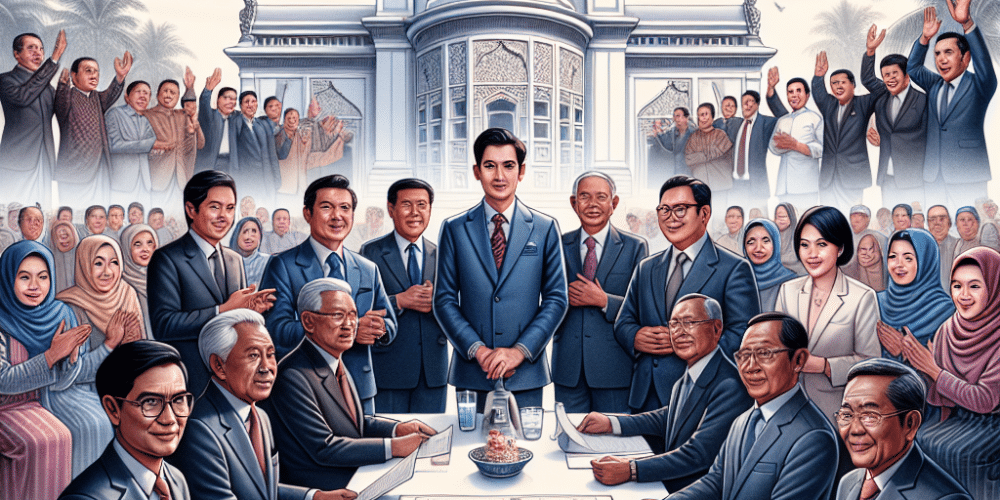On September 7, 2025, Anutin Charnvirakul became Thailand’s new Prime Minister, stepping into a political landscape fraught with discussions about the regulation of casino resorts, or “entertainment complexes” as they are known locally. The introduction of such complexes has been a contentious issue, with disagreements among lawmakers about the best path forward.
Despite some initial support for the legislation that would pave the way for these entertainment complexes, enthusiasm has dwindled. The recent appointment of Charnvirakul has added uncertainty to the mix, as he has expressed skepticism about the feasibility and desirability of these projects. Compounding the issue is the anticipated dissolution of Charnvirakul’s government by the end of January, reflecting a broader pattern of political instability within the kingdom.
The Thai Senate, under the leadership of a special committee chaired by Senator Dr. Veerapun Suvannamai, has recently dismissed several proposed laws and regulations concerning these entertainment complexes. The concept appears to be a non-starter for now due to significant opposition. However, the Senate has proposed an interesting twist: the idea of putting the legalization of such complexes to a national referendum. This move acknowledges the widespread opposition among Thai citizens, as well as apprehensions voiced by academics and economists who question the economic benefits.
The question remains whether entertainment complexes could operate successfully without the inclusion of casino floors. Some lawmakers have optimistically suggested that such complexes might still function without relying on gaming activities. Yet, this notion seems impractical. The non-casino entertainment components are generally designed to complement and augment the casino experience, rather than serve as standalone attractions. Critics argue that omitting the casino element undermines the financial viability of the entire proposal.
Senator Chinachot Saengsang, reflecting on a draft bill aimed at introducing entertainment complexes while excluding casinos, remarked, “The casino is not a side feature – it’s the core of the proposal. If the new government includes casino legalisation in its policy platform, it risks undermining public confidence and long-term governance.” His comments highlight the apprehension that integrating casinos into the policy agenda might erode public trust, a risk that could have long-lasting repercussions.
From a broader economic perspective, proponents of casino-based entertainment complexes argue that they could boost tourism and generate substantial revenue streams for the country. They point to successful models in regions like Macau and Las Vegas as examples of how such complexes can transform local economies. Yet, opponents caution against drawing parallels too hastily. The social costs associated with gambling, including addiction and crime, are cited as significant concerns that could outweigh potential financial benefits.
As the debate rages on, some stakeholders call for a more nuanced approach, suggesting that any move to legalize casinos should involve robust regulatory frameworks to mitigate potential harms. These frameworks could include measures such as stringent oversight, responsible gambling programs, and community benefit agreements to ensure that local populations share in any economic prosperity that might arise.
The proposed national referendum, therefore, emerges as a pivotal mechanism for gauging public sentiment. While some view it as a democratic solution to a divisive issue, others worry that it might simply postpone the decision-making process, leaving the door open for continued political maneuvering. The outcome, whichever way it swings, will undoubtedly have significant ramifications for Thailand’s entertainment landscape and its broader economic strategy.
On the other hand, some economic analysts suggest that by focusing on diversifying tourism offerings without gambling, Thailand could cultivate a unique position in the Southeast Asian market. This approach could leverage the country’s rich cultural heritage, pristine natural landscapes, and culinary excellence, offering a distinctive appeal to tourists without resorting to gambling.
The impending decision thus places Thailand at a crossroads. As the Senate weighs the merits of a referendum, lawmakers and citizens alike grapple with the implications of introducing entertainment complexes into the national fabric. Whether the nation chooses to embrace these developments or seeks alternative pathways, the debate underscores the complex dynamics of balancing economic ambition with societal values.

















